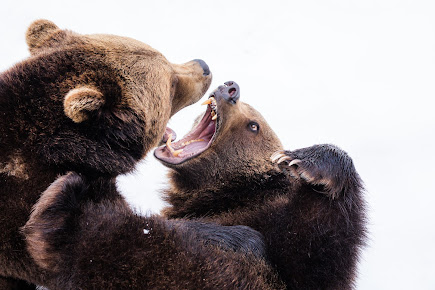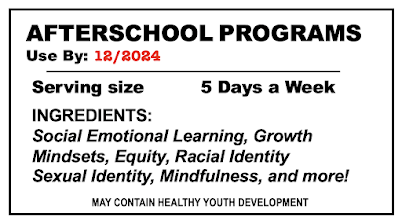In part 1 of Afterschool and the Education Culture Wars we introduced the issues that many schools are facing regarding critical race theory and the call to ban books dealing with identity issues (racial and gender). In part 2 we offer some tips on how to avoid entanglement in these education culture wars and how to combat misinformation in the community.
HOW TO AVOID ENTANGLEMENT IN THE EDUCATION CULTURE WARS
When Describing the Program, Sharpen the Message; Avoid Acronyms and Jargon
When describing your program in written outreach documents, remember your audience are not afterschool insiders- they might be parents and community members. It is very useful to have parents and community members review the text to ensure that it is understandable to an outsider. This is also a good way to build parent advocates for the program who can speak out and support if the program comes under scrutiny.
 |
| Source: Nicolas Picard, Unsplash.com |
“The first question they [parents] had was, ‘What the hell are you talking about?’” he said. “’I get math. I get reading. What the hell is social-emotional learning? ’When commissioners explained they wanted schools to nurture qualities such as discipline, self-management, and relationship skills, “they’d [parents] say, ‘Oh yeah, we’re for that,’” - John Bridgeland, CEO of Civic Enterprises
 |
| Terry Peterson |
Double Down on Commitment to Program Values
“We all just have to continue to believe in what we do and stick together and not back down.” - Bridget Laird, CEO of WINGS for Kids
While it is important to steer clear of trouble, we have to remain committed to our views. Below are some inspirational statements taken from As Terms Like ‘SEL’ Draw Fire, Organizations Supporting Schools Sharpen Their Message by Libby Stanford for ED Week.
“Although the rhetoric surrounding critical race theory and SEL can be loud at times, it has not deterred education organizations from being vocal about their work. ‘If anything, we’ve doubled down on our values, we’ve doubled down on our program,’ Peter Shulman (CEO of Urban Teachers) said.”
“Urban Teachers isn’t coy about its stance on race and racism in its messaging. On its website, the organization writes “Structural racism and inequality have kept generations of urban children from receiving the education they deserve.”
Get Involved, Especially in Your Local Community
Support for afterschool is not guaranteed and may have a shelf life. Thus, it is vital that we get involved in decision making to protect afterschool. Below are some suggestions.
- Support candidates and groups that agree with your values.
- Vote for local, state and federal candidates that agree with your values.
- Keep up on what’s happening locally and across the nation.
- Write to your elected officials to continue supporting afterschool.
Participate by:
- Running for school board or a local office
- Follow or attend local school board meetings. They are often televised, or video recorded and publish their notes and future meeting agendas on community websites. You can view a recorded school board meeting from Polk County, Florida, as they discuss the banning of books.
On September 13, 2022, Temescal Associates and The How Kids Learn Foundation will be sponsoring a webinar on this topic to further discuss the issues behind the current education culture wars and how it affects afterschool. Panelists will include Terry Peterson (Afterschool Alliance), Michael Funk (CDE), Bridget Laird (WINGS for Kids), Melissa Schlinger (CASEL) and Femi Vance (AIR). To learn more and register for this informative webinar, click here.











